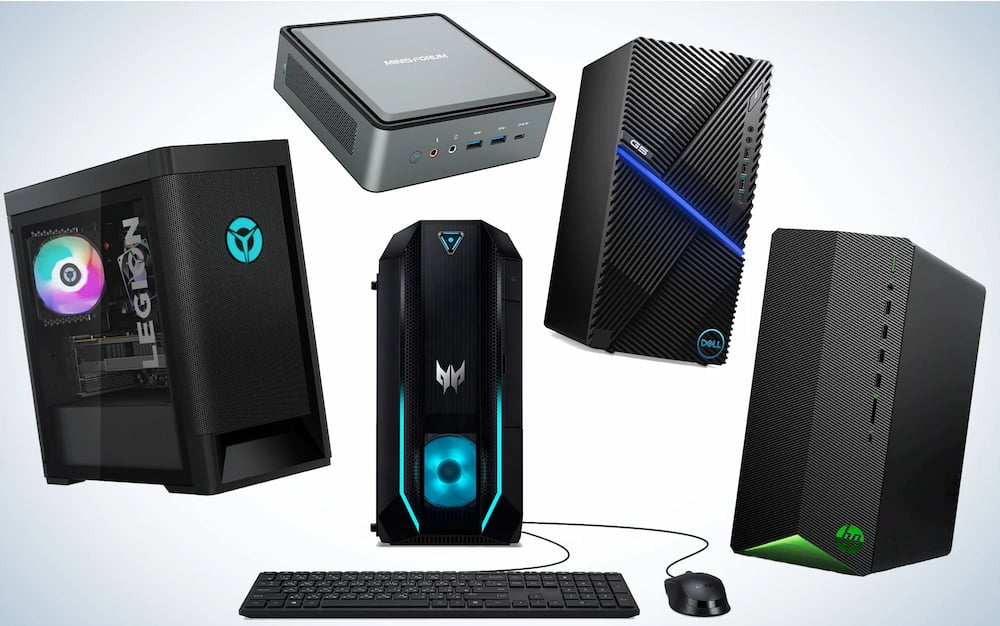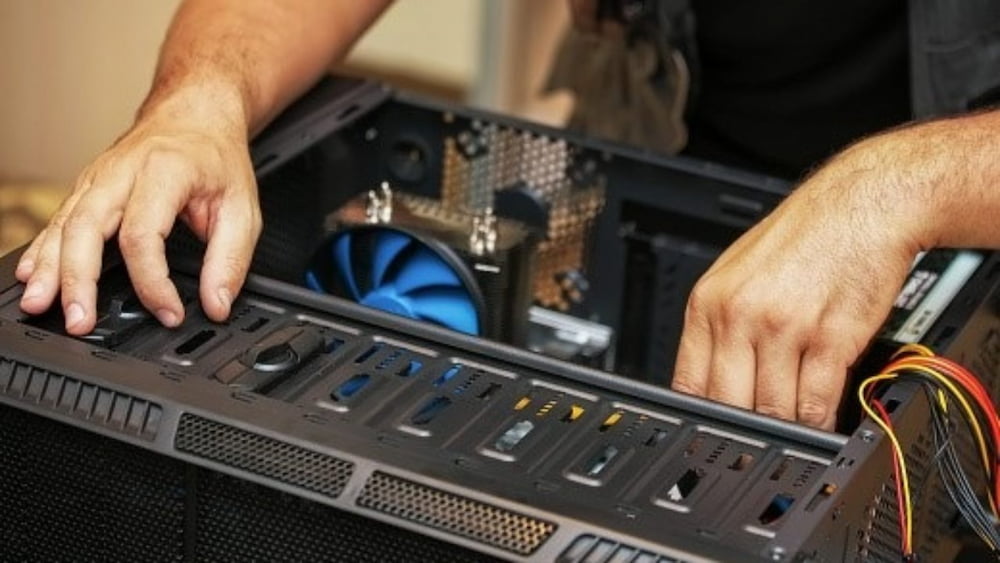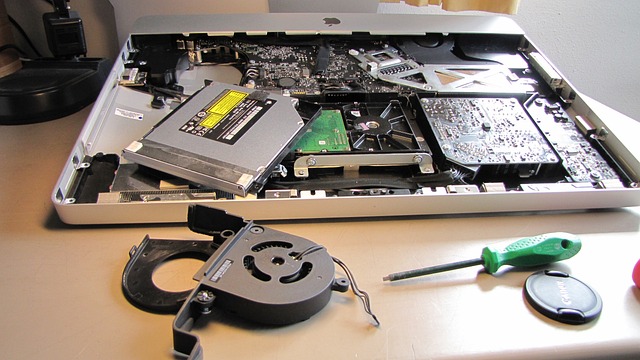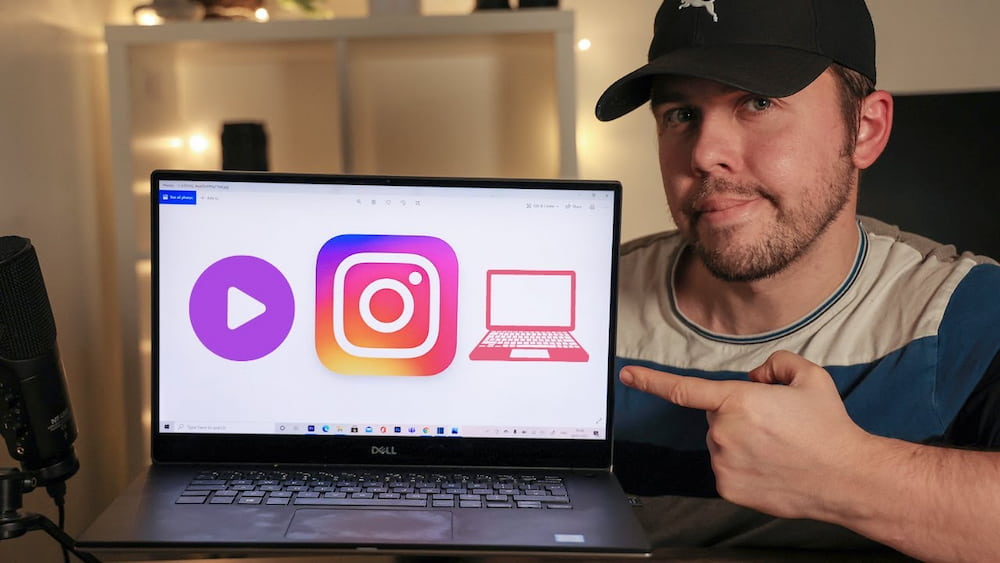
I had a great time building my PC.
Searching for parts, ensuring compatibility, reading reviews, waiting for parts to arrive, actually putting it all together, the anxiety you feel when it doesn’t work, and the relief you feel when you realize you simply forgot to turn on the PSU.
It all forms a wonderful part of the experience of building your own PC from scratch.
Is it cheaper to build a PC? Building your own PC is less expensive in the long and short run. You can select components specifically for your requirements and save money by building your own PC instead of purchasing it pre-assembled. Additionally, it protects you from shoddy parts that require repair after a year and are cheap.
Even though it may sound nerdy, I’m going to venture a guess and say that you might also be a little nerdy if you’re reading this.
Please continue reading the post after this one to see more details.
Table of Contents
Is It Cheaper To Build A PC?
Advantages
You Choose What’s In It
The fact that you get to choose each and every component when you build your own PC is its biggest advantage. This gives you a great deal of flexibility with your build and enables you to make it do whatever you want. Are you just looking to play games hard? Spend more money on a strong GPU and RAM and a little less on your motherboard and CPU. You won’t spend money on anything you don’t need or want because the power is all yours from the start.
No Unnecessary Costs
Pre-builds typically involve some overhead. Even if it’s only $50, you’re still paying someone else to build your PC, so that’s still money out of your pocket. Additionally, pre-builts occasionally come with extra flair like RGB strips and fans that are unnecessary. Building your own powerful but unattractive PC will save you money.
Used Parts
The benefit of purchasing used and refurbished components is another benefit of building your own PC. Used parts may not be trusted by everyone, but in my experience, they almost always function flawlessly. This is especially true if you are buying used parts from someone you know. Offer to buy a friend who enjoys gaming’s old GPU, CPU, or whatever else they have, and you’ll save even more money.
Learning Experience
Can education be bought or sold? You can, of course, but in this case, building your own PC will save you money and help you gain a lot of useful knowledge. There will be a time when you need to replace something, even if you purchase a pre-build. That’s just how computers function. You will therefore be ready the day you have to open that case if you build your own.
Disadvantages
Less Convenient
Compared to a PC that you can just order with one click or buy off the shelf of your local computer store, building your own PC is definitely a lot more inconvenient.
The easiest step is choosing the components.
The next step is to decide where to purchase them.
Do you buy new or used goods?
Following that, you must actually order them and wait for delivery, which could take a few days or even a week or two.
Then there is the actual building process itself, which involves both research and construction.
And if you need a PC rightnow while all of this is going on, you’re outta luck.
You might also suffer financial losses if you depend on your PC for work.
There’s A Chance You’ll Make A Mistake
It is unlikely but not impossible that this will actually occur.
The likelihood of you making an irreparable mistake with a modern PC component is quite low because they are very foolproof.
And it’s even lower if you spent even the slightest amount of time researching what goes into building a PC.
But if you simply jump into it without any planning and just throw things together, you run the risk of breaking a part and having to RMA it—or, worse, have to buy it again.
You Have To Learn
If you’re completely new to PC building, you’ll need to set aside some time to learn how to build a PC and create a good parts list.
This usually only takes 2 to 5 hours of your time, which isn’t all that much.
However, if you’re extremely busy, you might not be able to afford 2 to 5 hours of free time.
It Can Be More Expensive
Computer hardware prices, along with those of seemingly everything else, have increased significantly as a result of the global chip shortage.
As a result, PC components that once cost $300 are now $2–3 times as expensive.
Due to this, building your own PC for the same price as you could a few years ago may be very challenging.
However, these price increases and hardware shortages haven’t had as much of an impact on PC manufacturers as they have on consumers.
They can offer PCs at prices that would be challenging to match on your own because they can purchase hardware in bulk at discounted prices and cut costs by using lower quality parts.
They remain overpriced and marked up as usual, but they are occasionally less expensive than purchasing a PC.
This is a temporary situation though – In a normal market situation buying your own parts is cheaper.
Is It Less Expensive To Buy A Computer?
Advantages
You Will Receive Support And A Warranty
The ease with which a PC can be returned if there is a problem is among the main arguments in favor of purchasing one.
The manufacturer will handle everything, so you don’t need to know anything or take any action.
It can have some drawbacks, as I mentioned above, but it’s difficult to deny the convenience of having someone else handle your problems for no charge.
It Will Be More Practical
It can be very inconvenient to construct your own PC.
There are many factors involved.
It’s easy enough to do if you have the time, but it can’t be denied that building your own PCs will never be as convenient as buying a prebuilt computer that is immediately usable.
especially if your PC is essential to your ability to do your job.
You might not be able to complete your work if you have to wait a long time to get a PC, which will undoubtedly cost you money.
If You Want A Basic PC, It Might Be Considerably Less Expensive
When it comes to budget PCs, pre-builts excel.
You can easily buy off the shelf and start using a ton of lower-end, under $300 PCs.
Now, would I ever advise you to do this? No, absolutely not.
These are the lowest quality computers you can imagine, built with parts from discount stores and exclusive designs.
But if you really, really need a PC now, and you don’t have the money to spend on something better, they can come in handy.
Potentially Get It For Cheaper Due To The Current Global Situation
One of the biggest reasons that prebuilt PCs have been given the limelight is because of the global hardware shortages, crypto booms, and “scalpocalypses”.
Hardware costs, particularly GPU costs, have increased by two to three times what they should have.
For the average person, it is now practically impossible to purchase hardware for the price it was intended to be.
A typical Joe is the key phrase.
Again, large manufacturers haven’t been affected as much by this as the PC component sector.
This is due to the fact that they order parts in large quantities and receive discounts.
letting them acquire it at a lower cost than you could.
They now have the exceptional chance to offer you PCs at a lower price than they could previously, thanks to this as well.
Even after factoring in labor costs, markup, and other expenses, some pre-builts end up being less expensive than purchasing the parts separately and constructing the PC from scratch, which was the exact opposite a few years ago.
Now, not all pre-built homes will be this way. Some of them will still be more expensive than if you had made the item from scratch.
However, if money is tight, scouring prebuilt PC websites during shortages is a great time to see if you can score a PC for less than you can build it.
Disadvantages
Bad Parts Could Be Delivered
One of the biggest reasons that people campaign against getting pre-builts (from companies like Due to their cost-cutting methods, companies like Dell, HP, etc.
By using lower quality parts for the non-critical components and ordering these in bulk, these sorts of monolithic companies can cut costs massively.
But because of that, you might get a machine that has gimped cooling potential or a dangerously shoddy power supply, or lower quality storage.
However, if you’re buying your PC from a company that specializes in building You’re less likely to experience these kinds of problems with PCs made by manufacturers like Maingear, Origin, or Pugetsystems.
But the likelihood is sadly never zero—unless you choose every component yourself, in which case building your own PC isn’t that much more work.
Labor Costs & The Manufacturer’s Markup Will Be Higher
Nothing is ever sold by a manufacturer at the price they pay to purchase it.
In order to make a profit on the goods they sell, they will take into account labor costs and add a nice markup on top of that.
This can cost anywhere between $50 and $250+, which can add up to a sizable sum on top of everything.
If The Computer Even Has A Minor Issue, You Will Have To Wait Weeks For Repairs
PCs can occasionally behave strangely. Computers are just like that.
And if you don’t understand computers well enough to diagnose and repair the issue on your own, you’ll need to return your PC to the maker for repairs.
On the surface, this might seem like a really positive development.
The vast majority of PC problems, however, are actually quite simple to resolve on your own; all you need is a little know-how.
Furthermore, if your PC is essential to your job, you will be unable to work for several weeks while it is being repaired, which will cost you money.

What The Average PC Needs
Building your own PC is a long process with a lot of steps. In order to estimate the cost to build a computer from scratch, it’s crucial to start with a basic understanding of the components required for an average PC.
Processor
Unless you’re building a gaming PC, in which case you might want to start with the graphics card, the CPU is the system’s brain and should be the first component you select.
Although there are a dizzying array of processor choices, most users typically choose between the Intel Core i3 (entry-level), i5 (mid-range), and i7 (high-end) processors.
Typical Price for CPU: $100-$500
Motherboard
Your system’s motherboard serves as its structural support and is the point at which all other components are connected. Additionally, it has other ports, including USB ports, and perhaps Wi-Fi and Bluetooth radios. You need to ensure that your motherboard is compatible with all of your chosen parts and that it fits in your computer case.
You might also consider the Mini-ITX form factor for building your PC.
Typical Price for Motherboard: $50-$200
Memory
It’s unfortunate that RAM, one of the most efficient and cost-effective upgrades you can make to your PC, is one of the areas where PC manufacturers are infamous for cutting corners. If you want extra RAM in a pre-built machine, it’s almost a given that you will pay way over market value.
Typical Price for Memory: $60-$90 (8GB)
Graphics Card
Image Credit: NVIDIA
The graphics card may or may not be required, depending on the kind of system you’re building. If you’re building a gaming PC, then you should pick a good graphics card first so that you can build the rest of your system around it. But take note that expensive graphics cards have a tendency to increase the price of building a PC.
Modern Intel and AMD CPUs have integrated graphics support and are adequate for non-gaming PCs. The majority of low- to mid-range PCs can get by with this.
Typical Price for GPU: $60-$500
Storage
For storage, your choices are between a traditional hard disk drive (HDD)—cheaper, much higher capacity, slower—and a solid-state drive (SSD): more compact, quicker, and lower in capacity.
Some more expensive systems use both, storing the operating system on the SSD for best performance and the data on the larger but slower HDD. It is sufficient for the typical user to obtain one. Your personal preference will determine whether you should choose an HDD or SSD.
Typical Price for Storage: $30-$300
Power Supply
Another easy place to cut costs if the total cost of building a PC exceeds your budget is the power supply. Getting a modular unit—which improves airflow inside the case—and greater energy efficiency are advantages of paying more, and the latter may result in long-term financial savings. The right wattage for your hardware is absolutely essential.
If you’re looking for recommendations in this area, take a look at our list of the best PSUs for PC builders.
Typical Price for Power Supply: $40-$200
Fans
For your system to stay cool, you may or may not need additional fans. Most computer cases have at least one fan already installed, and the majority of processors, graphics cards, and power supplies also have dedicated fans.
You can always add more fans later if your computer case turns out to be inadequate at moving air around. Thermal paste is another option for keeping the processor cool.
Typical Price for Fans: $20-$100
Case
Case sizes and styles come in a huge variety. The most crucial factor is that it fits your motherboard and all of the attached components. Here are the best PC cases we recommend.
Typical Price for Case: $50-$300
Extras And Optional Accessories
You might need to add a few extra things on top of the essentials. If your motherboard doesn’t already have one, these could include an optical drive (such as a DVD drive) and a wireless card. a only if you require a DVD drive.
We’ll assume you already have a monitor, mouse, and keyboard, but if not, you’ll also need to account for the cost of those items.
Operating System
You must remember to factor in the price of an operating system when estimating the cost of your custom-built computer. A Linux distribution like Ubuntu can be used for free, but if you want Windows, you’ll have to pay retail prices, and retail Windows isn’t exactly cheap.
Consumers can expect to pay about $100 for Windows 10 Home. When Windows 11 becomes available for your device, you can upgrade for free if you were able to obtain a copy of Windows 10 and your computer is Windows 11-compatible.
Is Building Your Own Pc Difficult?
Building your own PC is not difficult as long as you make use of the numerous resources available online. Guides and tips can be found on a lot of social media groups and Youtube channels. Without utilizing these resources, building your first PC on your own will be challenging.
My computer was purchased damaged from a friend. I was utterly terrified to open it up and poke around when I first got it. I was not at all interested in finding out how to construct a PC or even replace components. But as I looked up tutorials and guides, asked friends for assistance, and things started to click, I realized how simple and enjoyable it really is.
Since then, I’ve disassembled and reassembled my computer several times, and I’ve also assisted friends in constructing their very first computers. The most challenging aspect of building a PC, once you have it down, is organizing the cables and making the interior look professional.
Is It Worth It To Build Your Own Pc?
It’s worth it to build your own computer. You get to pick which components go inside, saving you money while also enhancing the performance of the build as a whole because you can make sure every component is of high quality. You can make your own replacements in the future if you know how to build a PC.
Knowing every component of your computer has a lot of advantages. You can’t really tell which components in a pre-built PC are high-quality and which aren’t if you buy one. On the power supply unit, manufacturers have a bad habit of cutting corners, which causes problems later. You can ensure that the parts you had to skimp on aren’t particularly dangerous if you build your own because you will know which ones you had to cut corners on.
In the end, building your own PC will cost you roughly the same amount of money, if not less, than buying a pre-built PC. However, you’ll get a lot more value for your money when it comes to gaming, and you’ll discover a lot about how your PC operates.
This information will be useful when it comes time to upgrade or replace a component for your PC, which you will need to do whether you build your own or purchase a pre-built computer.
Final Words
How expensive your gaming PC will depend on the specifics of what you want, but it is cheaper to build it yourself.
Any gaming PC will have significant cost savings when you examine the individual components and compare their total cost to purchasing them separately.
Complete control over all of your components is an additional benefit. Many pre-built gaming PCs that aim for a particularly appealing price point will economize elsewhere by sacrificing one small detail.
There are numerous smaller components that might not catch your attention like the GPU that they can skimp on, including poor cooling and less RAM. Even if you pre-purchase a gaming computer, it’s possible that you will eventually need to replace parts that you significantly overpaid for.
I appreciate you reading, a lot.



